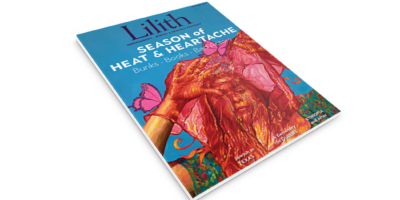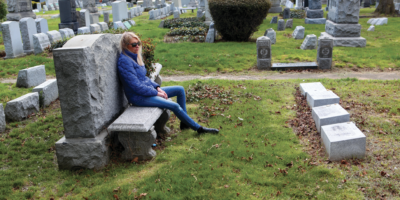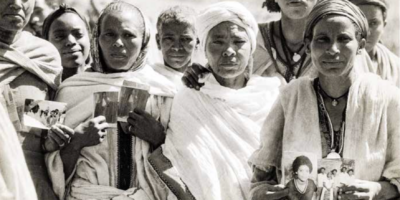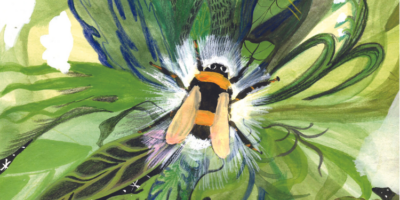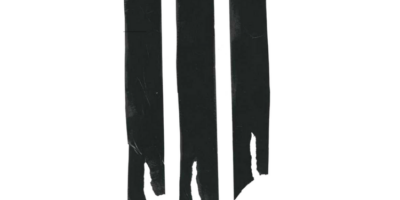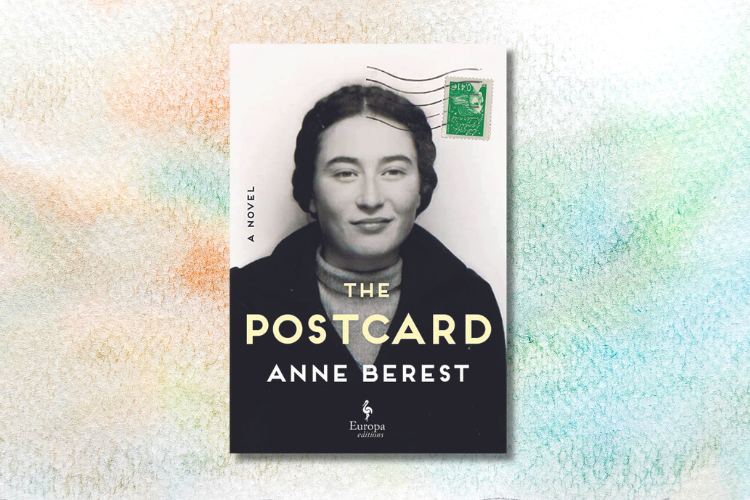
Tragedy and Discovery, Braided Together
The Postcard (Europa, $28.00) is a braided story of family tragedy and lives lost and found. The author, French actress/writer Anne Berest (translated by Tina Kover), plumbs her Jewish heritage after a lifetime of ignoring it, unravels the dramatic life of her maternal grandmother, and opens a slice of her present. Each segment of the book is riveting and present, no matter how long ago the events took place.
The Postcard jumps off from an anonymous postcard sent to the author’s mother in January 2003. The card contained four names: Ephraïm, Emma, Noémi, Jacques; all family members who were murdered in Auschwitz. These relatives haunt the narrative. They are the author’s great grandparents Ephraïm and Emma, and her great aunt and uncle Noémi and Jacques.
The story is true. However, The Postcard is called a novel and reads like a novel. Its living protagonists are the author and her mother Lélia.
Lélia is the granddaughter of the Spanish-born artist Francis Picabia and French Resistance fighter Gabriëlle Buffet-Picabia on her father’s side. On her mother’s side, Lélia is Jewish, the granddaughter of a Russian family—Rabino-vitch—who emigrated to France against the backdrop of the Russian Revolution. Lélia holds many, but not all, the keys to the postcard’s mystery.
The first section of The Postcard is a compelling tale of how Berest’s ancestors made the decision to flee Russia. Berest takes us through her great grandparents’ love affairs, work lives, and their ultimate
decision to settle in France. They are the Ephraïm and Emma of the postcard; Ephraïm an enterprising businessman, Emma a loyal and intelligent wife, and their children—Myriam and Noémi, outstanding students and intellects, and their brother Jacques, adored by all.
This first section unfurls much of the family story, the obedient, patriotic parents—Ephraïm and Emma, at constant pains to prove their worthiness in France, but repeatedly denied French citizenship. As non-citizens they fell into the group of Jewish “foreigners” who were the first to be deported in occupied France, valiant efforts to contribute to French society notwithstanding.
Berest’s recounting of their inevitable capture and murder is so heartbreaking as to be practically unreadable. When the police come for children Noémi and Jacques, Ephraïm dutifully complies, only to spend the rest of his life before he and Emma are deported, trying to find them (their children had already been murdered). This story is not only about following the rules to prove their loyalty to France, but also about the unimaginability of what was to come. In hindsight we grieve and wish that they had been clairvoyant. How few people were!
The second part of The Postcard is titled “Memories of a Jewish Child With-out a Synagogue.” In this section, Berest brings us into her current life. Why does her young daughter come home from school saying, “They don’t like Jews very much at school”? Disconnected from her Jewish past, the author recalls her mother’s postcard, and begins conversations with her mother for more information.
The third part of the book is Myriam’s war story. She was Ephraïm and Emma’s oldest child, and was out breaking rules by the time the Nazi noose closed in on the rest of her family. She married the Picabia’s son Vincente, whose parents’ neglect of him was akin to abandonment. Vincente was young and mercurial, and ultimately the marriage did not last. The couple remained together during the war, however, and the author’s mother was born during that time.
Myriam and Vincente joined the resistance, which ultimately saved their lives. Myriam, the author’s grandmother, was tireless in trying to find and protect the rest of her family, but to no avail. Her later silence on the subject, like that of so many others, belied a lifetime of agony over her family’s murder.
The family’s adaptability and ability to fit in in France proves fatal.
The fourth and final part of The Postcard solves the mystery of who penned the postcard, and what was the motive of the sender. This section takes place in contemporary time and contains its own amazing narrative. The author and her mother demonstrate astonishing sleuthing skills at finding people still alive to help solve the mystery.
This novel is a page turner that shines a light on the danger of treating immigrants and refugees as “other.” The family’s adaptability and ability to fit in in France proves fatal. They stay—even as they cannot get citizenship—certain that they are protected by their class and impressive contributions to their community and society at large.
The questions The Postcard raises are important today as they were then. As author Anne Berest puts it: “This book is simultaneously a true detective story, the novel of my family over five generations of women, and a quest for the meaning of the word “Jew” in secular life.”
Martha Anne Toll is a book critic and novelist. Her debut, Three Muses, was shortlisted for the Gotham Book Prize and won the Petrichor Prize for Finely Crafted Fiction. Her second novel, Duet for One, is due out in 2025.

